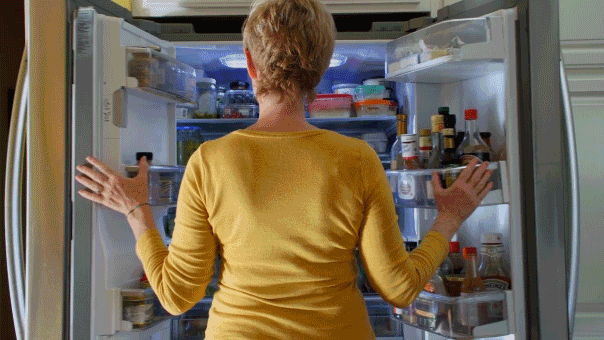
(iStock)
While it's common knowledge that the average (crappy) American diet may cause diabetes, heart disease, and cancer, few people recognize the connection between what you eat and and how you think. According to the National Institute of Mental Health, approximately one quarter of Americans "suffer from a diagnosable mental disorder in a given year"—and new research suggests that our diet is probably making us crazy too.
The link between diet and mental health is a new field of research, but studies have already shown a close association between the two topics. Results consistently indicate that eating foods rich in whole, unprocessed, nutrient-rich vegetables, fruit, meat, fish, and whole grains are associated with fewer incidences of mental health problems, while diets high in junk food (fried and processed foods, sugar, refined grains) are associated with higher rates.
DETAILS: 5 Foods That Make You Look Younger
It's important to note that so far the distinction is just a correlation, and association does not mean causation. But even if we don't understand yet exactly how certain foods contribute to mental health woes, the strong connection is hard to ignore. Much of the research is digging into the so-called gut-brain connection and its role in mental illness.
DETAILS: How Many Calories Are Hiding in Your Chipotle Burrito?
Here's how it may work: Microbes—both good and bad—live in the gastrointestinal tract (probiotic yogurt allegedly supports the good ones). Scientists now believe that these gut microbes are in direct communication with the brain and that they have a powerful role in determining our physical and mental health.
DETAILS: 5 Weird Signs That You're Vitamin-Deficient
Simply put: When you eat too much crap, you encourage the growth of disease-promoting bacteria, which upsets the balance of the gut microbiome. Studies in rodents have shown that an out-of-whack gut microbiome can, among many other things, force changes in brain chemistry, mood, and behavior that encourage depression and anxiety.
While human studies are just getting started, there are numerous stories of people who've junked their sugar-and-processed-food-heavy Standard American Diet (yes, the acronym is also how it makes us feel) in favor of unprocessed whole foods and found relief from symptoms of mental illness. Adherents to the Paleo Diet, which consists of vegetables, fruit, meat, and fish (no grains), are particularly vocal about the positive effects on mood disorders.
DETAILS: The Top 5 Hairstyles for Men
The Paleo Diet and other whole-food-oriented eating regimens seem to work well to heal the gut microbiome and control systemic inflammation because antioxidant-rich vegetables and healthy omega-3 fats (like the ones in grass-fed beef and fish) have anti-inflammatory effects on the body—and the mind.
It's still too early to know whether someday we'll be trading our Prozac for a whole-foods diet. More than likely, as our understanding grows about the food-mood connection, diet will be used as yet another way to help people manage psychological issues. Mom's prescription was right, after all: Eat more veggies, kids.








































